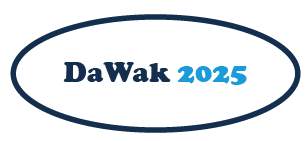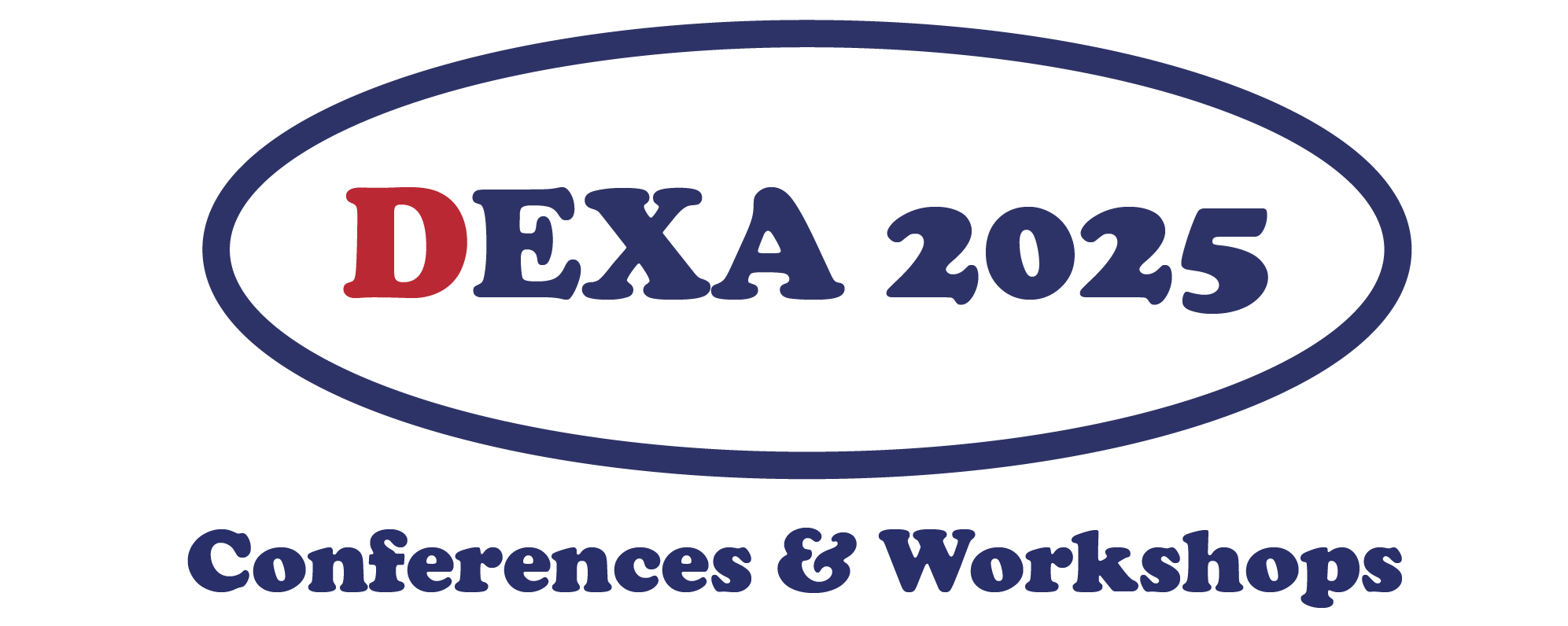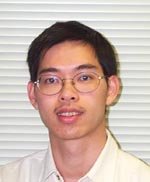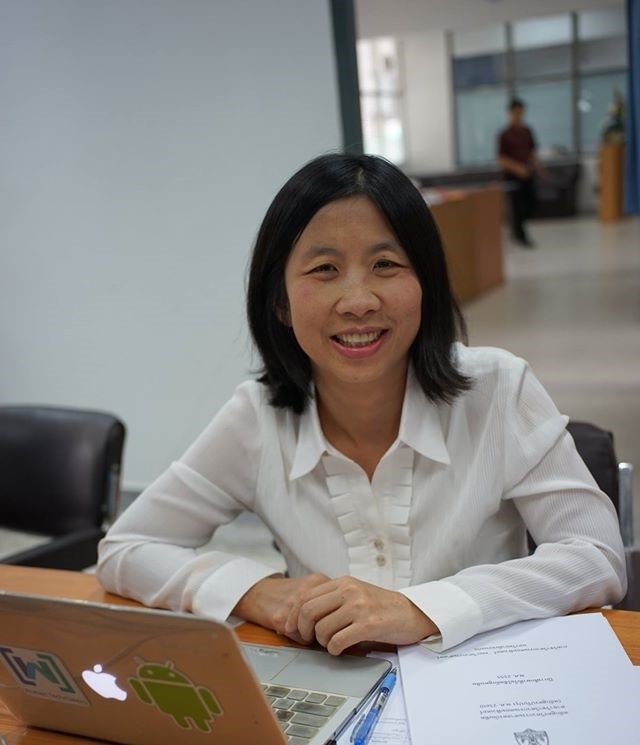Welcome to DAWAK 2025

The 27th International Conference on Big Data Analytics and Knowledge Discovery
25 - 27 August, 2025
Bangkok, Thailand
Papers submission: https://dawak2025.iiwas.org
Important dates
Paper submission: 10 April 2025 (Sharp & Final)
Notification of acceptance: 20 May 2025
Camera-ready copies due: 14 June 2025
Authors Registration deadline: 14 June 2025
Conference days: 25-27 August 2025
Publication
All accepted conference papers will be published by Springer in their Lecture Notes in Computer Science (LNCS). LNCS volumes are indexed in Scopus; EI Engineering Index; Google Scholar; DBLP; etc. and submitted for indexing in the Conference Proceedings Citation Index (CPCI), part of Clarivate Analytics’ Web of Science.
The best DAWAK papers will be invited to contribute to the Special Issue of Data & Knowledge Engineering (DKE).
Scope
DaWaK conference is a high-quality forum for researchers, practitioners and developers in the field of Big Data Analytics, in a broad sense. The objective is to explore, disseminate and exchange knowledge in this field through scientific and industry talks. The conference covers all aspects of DAWAK research and practice, including data lakes, database design (data warehouse design, ER modelling), big data management (tables + text + files), query languages (SQL and beyond), parallel systems technology (Spark, MapReduce, HDFS), theoretical foundations and applications, text and data mining techniques, and deep learning.
Topics of Interest
The conference will bring together active researchers from the database systems, cloud computing, programming languages and data science communities worldwide. Main topics include:
- Theoretical models for extended data warehouses and big data
- Conceptual model foundations for big data
- Modelling diverse big data sources
- Parallel processing
- Parallel DBMS technology
- Distributed system architectures
- Scalability and parallelization using Map-Reduce, Spark, and related system
- Query languages
- Query processing and optimization
- Semantics for big data intelligence
- Data warehouse and data lake architectures
- Pre-processing and data cleaning
- Integration of data warehousing, OLAP cubes, and data mining
- Polystore and multistore architectures
- NoSQL storage systems
- Cloud infrastructures for big data
- Metadata for big data frameworks
- Big data storage and indexing
- Big data analytics: algorithms, techniques, and systems
- Big data quality and provenance
- Big data search and discovery
- Big data management for mobile applications
- AI/ML for Big data analytics (text, time series, spatio-temporal, graph)
- Analytic workflows
- Graph analytics
- Analytics for unstructured, semi-structured, and structured data
- Analytics for temporal, spatial, spatio-temporal, and mobile data
- Analytics for data streams and sensor data
- Real-time/right-time and event-based analytics
- Privacy and security in analytics
- Data visualisation
- Big data application deployment
- Data science products
- Novel applications of text mining for big data
- Machine Learning: auto AI, deep learning applications
- AI/ML for data engineering, management, and analytics
Submission Guidelines
DAWAK 2025 follows a single-blind review policy. Authors are invited to submit original research contributions or experience reports in English. DaWak will accept submissions of both short and full papers.
- Short papers: up to 6 pages on preliminary work, vision papers or industrial applications
- Full papers: up to 15 pages (including references and appendixes). Full papers are expected to be more mature, contain more theory or present a survey (tutorial style) of some hot or not yet explored topics.
Papers exceeding the page limit or deviating from the formatting requirement are desk rejected. Submitted papers will be carefully evaluated based on originality, significance, technical soundness, and clarity of exposition. Duplicate submissions are not allowed and will be rejected immediately without further reviewing.
Authors are expected to agree to the following terms: "I understand that the submission must not overlap substantially with any other paper that I am a co-author of or that is currently submitted elsewhere. Furthermore, previously published papers with any overlap are cited prominently in this submission."
Questions about this policy or how it applies to a specific paper should be directed to the PC chairs
Submission Procedure
Papers submission will be managed using HotCRP papers submission system. Authors should consult Springer’s authors’ instructions and use the proceedings templates, either for LaTeX or for Word, for the preparation of their papers. Please refer to Paper Submission procedure page.
Accepted papers
Authors of all accepted papers must sign a Springer copyright release form. Papers are accepted with the understanding that at least one author will register for the conference to present the paper. Selected high-quality papers, after revision and extension, will be invited to be published, in a special issue of Data & Knowledge Engineering (DKE), Elsevier (IF=2.7).
Program Committee Chairs
Publicity Chair
Program Committee
- Abhishek Santra, University of Texas at Arlington, USA
- Alberto Abello, Universitat Politècnica de Catalunya, Spain
- Alejandro Maté, University of Alicante, Spain
- Andrea Kő, Corvinus University of Budapest, Hungary
- Besim Bilalli, Universitat Politècnica de Catalunya, Spain
- Boris Novikov, Finland
- Carlos Ordonez, University of Houston, USA
- Chaiporn Jaikaeo, Kasetsart University, Thailand
- Chitsutha Soomlek, Khon Kaen University, Thailand
- Chotirat Ratanamahatana, Chulalongkorn University, Thailand
- Christos Doulkeridis, University of Piraeus, Greece
- Chutiporn Anutariya, Asian Institute of Technology, Thailand
- Cristina Dutra de Aguiar, Universidade de São Paulo, Brasil
- Darja Solodovnikova, University of Latvia, Latvia
- Dimitri Theodoratos, NJIT, USA
- Ela Pustulka, University of Applied Sciences and Arts Northwestern Switzerland, Switzerland
- Elisa Quintarelli, Università di Verona, Italy
- Emanuele Storti, Università Politecnica delle Marche, Italy
- Enrico Gallinucci, University of Bologna, Italy
- Fadila Bentayeb, Universite Lyon 2, France
- Faten Atigui, CNAM, France
- Franck Ravat, IRIT, Université de Toulouse, France
- Frank Höppner, Ostfalia University of Applied Sciences, Germany
- Genoveva Vargas-Solar, CNRS-LIRIS, France
- Hwan-Seung Yong, Ewha Womans University, South Korea
- Isabelle Wattiau, ESSEC & CNAM, France
- Jaroslav Pokorný, Charles University in Prague, Czech Republic
- Jens Lechtenbörger, University of Muenster, Germany
- Jérôme Darmont, Universite Lyon 2, France
- Jorge Bernardino, Polytechnic Institute of Coimbra, Portugal
- Jun Miyazaki, Tokyo Institute of Technology, Japan
- Kamel Boukhalfa, USTHB University, Algeria
- Kanda Saikaew, Khon Kaen University, Thailand
- Kazuo Goda, University of Tokyo, Japan
- Keun Ho Ryu, Chungbuk National University, South Korea
- Kjetil Nørvåg, Norwegian University of Science and Technology, Norway
- Ladjel Bellatreche, ENSMA, France
- Laurent D'Orazio, University of Rennes, CNRS, IRISA, France
- Leonidas Fegaras, University of Texas at Arlington, USA
- Luca Gagliardelli, University of Modena and Reggio Emilia, Italy
- Maik Thiele, Technische Universitaet Dresden, Germany
- Marcin Gorawski, Silesian University of Technology, Poland
- Markus Endres, University of Passau, Germany
- Marut Buranarach, National Electronics and Computer Technology Center - NECTEC, Thailand
- Matteo Francia, University of Bologna, Italy
- Matteo Golfarelli, University of Bologna, Italy
- Michele Linardi, , CY Cergy Paris University, France
- Mirjana Ivanovic, University of Novi Sad, Serbia
- Mourad Khayati, University of Fribourg, Switzerland
- Olivier Teste, IRIT, France
- Omar Boussaid, Universite Lyon 2, France
- Oscar Romero, Universitat Politècnica de Catalunya, Spain
- Patrick Marcel, Université d'Orléans, France
- Praveen Rao, University of Missouri, USA
- Rim Moussa, ENI Carthage Tunisia
- Sana Sellami, Aix Marseille University, France
- Sandro Bimonte, INRAE, France
- Selma Khouri, Ecole Nationale Supérieure d'Informatique, Algeria
- Silvia Chiusano, Politecnico di Torino, Italy
- Sofian Maabout, LaBRI, University of Bordeaux, France
- Soror Sahri, Université de Paris, France
- Soumia Benkrid, Ecole Nationale Supérieure d’Informatique, Algeria
- Soumyava Das, Teradata Labs, USA
- Stephane Jean,University of Poitiers, ISAE-ENSMA Poitiers, LIAS, Poitiers, France
- Sven Groppe, University of Luebeck, Germany
- Syed Muhammad Fawad Ali, Accenture, Germany
- Thepchai Supnithi, National Electronics and Computer Technology Center - NECTEC, Thailand
- Trasapong Thaiupathump, Chiang Mai University, Thailand
- Vatcharaporn Esichaikul, Asian Institute of Technology, Thailand
- Wellington Cabrera, University of Houston, USA
- Witold Andrzejewski, Poznan University of Technology, Poland
- Wookey Lee, Inha University, South Korea
- Yinuo Zhang, Teradata, USA
- Young-Koo Lee, Kyung Hee University, South Korea
For further inquiries, please contact dawak2025@iiwas.org



